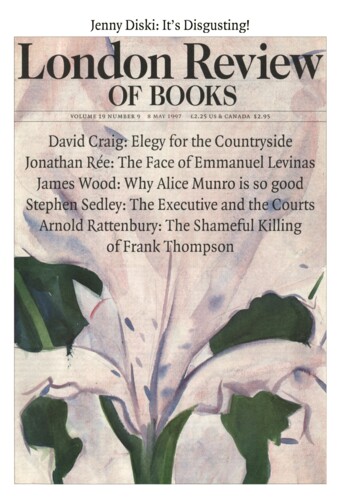E.P. Thompson, historian and peacemaker, known as Edward to his friends, died at his home near Worcester in 1993. Four years on, Beyond the Frontier is a volume of material set aside far earlier. Indeed, there occurs in it a passing reference to ‘the raw material for half-finished books on William Blake and Customs in Common’, works long since published. From the mid-Eighties mountainous illness surrounded Edward, from which he nonetheless retrieved the last big works: Customs in Common (1991), which traced a disappearing culture back over ground where he had earlier seen ‘the making of the English Working Class’; the hugely original Witness against the Beast (1993) about Blake; the far less noticed Alien Homage (1993), about his father’s see-saw relationship with Rabindranath Tagore (his father, also Edward Thompson: Indianist, novelist, Georgian poet, polemicist, editor, hereinafter Old Edward – which is how I knew him). All these books are of a piece, inveighing against an academicism which mythologises history, against his hated ‘anti-history’ and attempting a greater order of clarity. In Alien Homage he abominates ‘abbreviated categories which too often close enquiry before it has commenced. Some in the West are prisoners of vast undiscriminating categories … and bring those ready-made slide-rules to measure, and often to obliterate, the complexities of the past.’ That could stand as motto for all three works. Beyond the Frontier is hacked from the same hard material, and came first.’
Beyond the Frontier: the Politics of a Failed Mission, Bulgaria 1944 by E.P. Thompson. E.P. Thompson, historian and peacemaker, known as Edward to his friends, died at his home near Worcester in 1993. Four years on, Beyond the Frontier is a volume of material set aside far earlier....


